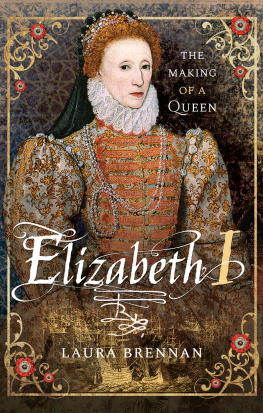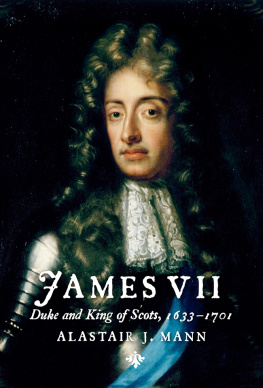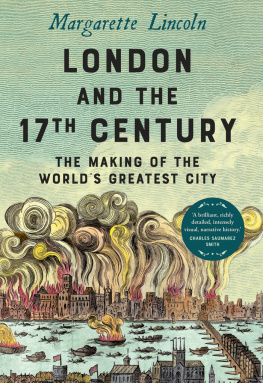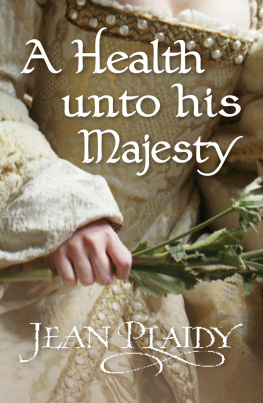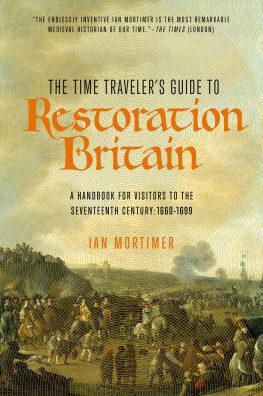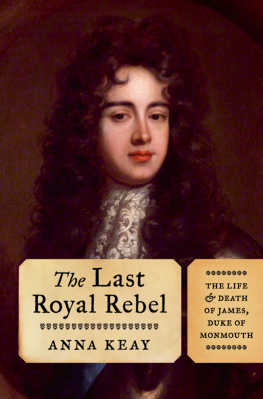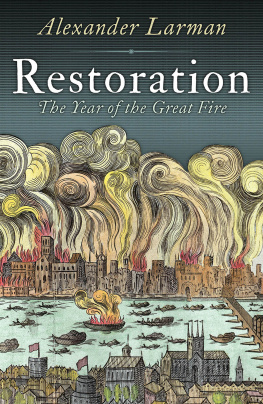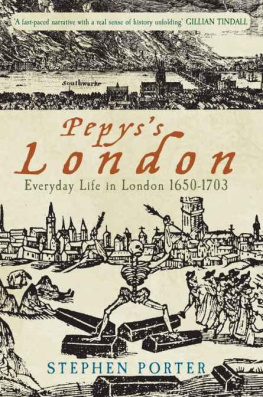THE
DUKE of MONMOUTH
LIFE and REBELLION
For all dreamers
If you persist
Dreams can come true
This book is proof
THE
DUKE of MONMOUTH
LIFE and REBELLION
Laura Brennan
First published in Great Britain in 2018 by
PEN AND SWORD HISTORY
an imprint of
Pen and Sword Books Ltd
47 Church Street
Barnsley
South Yorkshire S70 2AS
Copyright Laura Brennan, 2018
ISBN 978 1 47389 434 1
eISBN 978 1 47389 436 5
Mobi ISBN 978 1 47389 435 8
The right of Laura Brennan to be identified as the author of this work has been asserted by her in accordance with the Copyright, Designs and Patents Act 1988.
A CIP record for this book is available from the British Library All rights reserved. No part of this book may be reproduced or transmitted in any form or by any means, electronic or mechanical including photocopying, recording or by any information storage and retrieval system, without permission from the Publisher in writing.
Pen & Sword Books Ltd incorporates the imprints of Pen & Sword
Archaeology, Atlas, Aviation, Battleground, Discovery,
Family History, History, Maritime, Military, Naval, Politics, Railways,
Select, Social History, Transport, True Crime, Claymore Press,
Frontline Books, Leo Cooper, Praetorian Press, Remember When,
Seaforth Publishing and Wharncliffe.
For a complete list of Pen and Sword titles please contact
Pen and Sword Books Limited
47 Church Street, Barnsley, South Yorkshire, S70 2AS, England
E-mail:
Website: www.pen-and-sword.co.uk
Acknowledgements
No book comes into being without the support, love and encouragement from those around the author; both professional and personal. This humble first foray into authorship is no exception. These words are therefore dedicated to all those who have seen me through the process of getting this book written and produced. It is for those who have talked through ideas, encouraged me when my spirit was broken, read and commented on the drafts, assisted in the editing and proofreading. No woman is an island and I am no exception.
Firstly, I would like to thank my publisher, Pen and Sword, who have shown enough faith to help me make my dream a reality and agreed to publish this book. Thanks particularly to Jonathan Wright, Lauren Burton, Laura Hirst and Heather Williams who have been patient with my questions, as well as soothing my anxieties. This dream could not have been a reality if it had not been for Kate Bohdanowicz; thank you. Heres to hopefully more ventures into history in the future.
My thanks also extend to the tutors and professors who encouraged me during my MA at Queen Mary University of London from 2007-2009. My biggest gratitude goes to Professor Miri Rubin for inspiring and encouraging me, and to Professor John Miller for bringing James Scott, Duke of Monmouth, to my attention and starting this obsession. He supported and guided me through the dissertation that would become the basis for this book.
I owe the staff at the British Library at St Pancras my thanks for their patience and help in ordering materials, as well as helping me find items on the stacking shelves in Humanities Room 1.
To my brother, Mark Linehan, you have helped make this possible more than you know. You stepped up when I needed someone to tell me I was not a failure. You gave me back my life, you helped me restart living when all I wanted to do was turn away due to circumstances neither of us could have foreseen or controlled. You may be my little brother but you are the best man in my life. Thank you.
Thanks also go to my amazing friends: to Colin Richards - you rekindled and restored a sense of who I am and by doing so, you gave me courage to pursue my dreams, including writing this book; to Beverley Adams thank you for your proofreading, encouragement and support. I must come to visit and you can educate me in football and butter pie; Ruth Sullivan - thank you for being amazing and understanding where others just cant and for being an Amazonian Warrior, as well as introducing me to Chris and Babs; to Julia Hopkins - Londons loss is New Zealands gain. Thank you for your love of art, history and Tosca, teamed with pictures of Lottie cat that have made me smile; to Rob Leadbeater - Darling, you have been my cheerleader, thank you. No girl could ask for more. Finally to Sarah Ursall, you inspire me, you are a wonder woman living in Derbyshire.
Finally, thank you to those who have brought this book. I hope that I will show you another side of one of the seventeenth centurys most fascinating men, James Scott, Duke of Monmouth. He was far more than a royal bastard and a rebel; he was a lover, a military hero, and a man whose fate was tied to the political and religious tensions of the time.
Introduction
A university professor once told me that history is what it says in its name; it is literally humanitys story and that those of us who choose to be historians are responsible not just for the dates, facts and academic whys and wherefores, but also to the people we choose to bring back to life; we are storytellers or, as Voltaire said, historians are gossips who tease the dead. This study of James Scott, Duke of Monmouths life, endeavours to be an unbiased, human story of a man first and foremost.
James Scott, Duke of Monmouth, may have been the eldest (illegitimate) son of a monarch, but when he entered the world, his father, Charles II, was a monarch without a kingdom, and with little prospect of getting it back from Parliamentary rule. His mother, meanwhile, was a commoner with a wanton reputation. His paternal grandfather, Charles I, had recently lost his head upon a scaffold on Whitehall. Due to his illegitimate status, James had no surname of his own. He was no normal royal child; he was born on the cusp of modernity and would become a true child of the seventeenth century, encapsulating it socially, politically and religiously.
From this near hopeless start, little James would go from exile in Europe, where he lived in near poverty, to triumphantly rejoicing in his fathers restoration to the thrones of England and Scotland. Monmouth would become a part of one of the most libertine royal courts within Europe. His status as a royal bastard ensured that he was able to rise within the family firm; first by being made a duke, and then by marrying into the most eligible aristocratic family in Scotland. The influences of his formative years meant that Monmouth would be his fathers son when it came to matters of the opposite sex; he made a poor husband but a willing and lusty lover.
The Duke of Monmouth was also a skilled military man, with experience in the field and at sea. His ability to communicate with those of all social statuses added to his effectiveness as a military leader, as well as making him popular with the general public.
I hope to prove within these pages that the Duke of Monmouth was a man of his time. He was so much more than a royal bastard and a failed leader of the last rebellion upon British soil. He deserves to be remembered for more than the failed act of treason against his uncle, James II and the consequent blundered and bloody forfeit of his life on Tower Hill.


